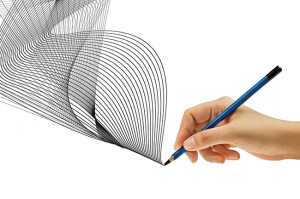Humanism and a Work/Life Balance

MY TWO HANDS are not getting along.
On the one hand, the purpose of a humanist life is to make the world better. There’s no afterlife, so the meaning of our lives comes from making this life better for as many people as possible.
On the other hand, the purpose of a humanist life is to experience the world. There’s no afterlife, so the meaning of our lives comes from savoring this life, as richly and fully as possible.
There are times when these two hands work together, peacefully and efficiently, each complementing the other and each becoming stronger and more dexterous from the other’s support. Taking pleasure in my life gives me the mental and emotional nourishment to carry on with my work (both my professional work and my unpaid activism); doing productive work makes it easier to take pleasure from the world, because I know that I’ve made a contribution to it, and feel a deep connection with it. At the best of these times, the two are indistinguishable: the work itself is a deep, replenishing pleasure, something I would do even if I didn’t have any responsibilities to uphold and weren’t getting paid for it.
And there are times when these two hands battle each other like mortal enemies. At the best of those times, it’s like I’m having a thumb war with myself; at the worst, it’s like one hand is viciously attacking the other, wrenching it at the wrist and trying to choke the life out of it. (Usually, it’s the work hand trying to destroy the “have a life” hand.)
I’ve recently taken up drawing as a hobby. (No, this isn’t a tangent; I promise it’s relevant.) I’ve been having some difficult struggles with depression of late, and I thought (correctly, as it turns out) that drawing would be an easy, low-investment, mentally healthy way to keep my mind engaged, and to keep it from perseverating on upsetting things I can’t do anything about.
Why drawing? For pretty much my whole life, I’ve been reasonably good at visual arts, but not mega-awesome or in any way ambitious. You might think it’s weird to take up a hobby that I’m not mega-awesome at—but that’s actually a big part of the point. I want a hobby that I don’t have to be goal-oriented or self-critical about, something that isn’t for public consumption, something purely for my own pleasure and satisfaction.
If I want to draw geometric patterns, or pictures of my backyard, or elaborate scenes of a happy monster society that makes sense to nobody but me—I can do that. I can make images that give me pleasure, because they give me pleasure and for no other reason. If an image isn’t recognizable to anyone but me, I don’t have to care. If an image doesn’t turn out the way I intended, I can enjoy where it wound up instead, or I can shrug and turn the page and do something else. And I can take pleasure from the process itself, the sensual flow of pencil on paper. I can draw based entirely on where it feels good to put the pencil, which hand movements make my brain feel good. Interwoven spirals? Fountains of feathery strokes? An entire page of graph paper painstakingly filled with tiny colored squares? Sure! Why not?

© Worradirek Muksab
At the same time, I’m noticing how difficult it is to do this. The drawing itself isn’t hard—that’s easy, put pencil to paper in a way that makes me happy—but it’s hard to keep doing it purely for my own sake. I’m noticing how deep a habit it is to be goal-oriented and self-critical, to get irritated with myself when I make a mistake, to get excited if I seem to be getting “better” or frustrated if I seem to be getting “worse.” (Better or worse at what? At enjoying myself?) And I’m noticing how deep my reflex is to post the art on my blog or on Facebook. I’ve decided not to share my drawings with others (outside my closest circle, anyway, and at least for the time being). If I knew I’d be posting the artwork online, I’d be stressing about what other people would think of it. Even if I weren’t stressing, I’d be thinking about what other people would think of it. I’d be entirely missing the point, and focusing my attention outward. But I’m finding that I have to be rigorously disciplined about that decision. I’m tempted to reverse it almost every day.
See, without sharing the drawings on my blogs and my Facebook page, without making them part of my public output, it’s hard to not think of this hobby as a waste of time. It’s hard to look ahead ten years (assuming I keep this hobby up), to imagine a file cabinet filled with notebooks of drawings that nobody sees but me (and maybe my wife Ingrid)—and not think of all the things I could be accomplishing instead with that time. I notice that even in this column, I introduced my new enthusiasm by describing it as a form of mental health care. This is true—but why did I need to explain my hobby by defining it as medicine?
It would be foolish to ignore the cultural component of all this. U.S. culture is largely obsessed with work, and tends to see time off as a sign of laziness, selfishness, and lack of ambition. (Compare, for instance, the standards of vacation time in the United States to most of the rest of the industrialized world.) Of course there’s a religious component to this cultural component: if you want to understand the American view of work and pleasure, just look at the phrase “Protestant work ethic.” The American view of work and pleasure is deeply rooted in Puritanism—in the notions that our bodies are disgusting fonts of sin, that the world is a festering swamp of temptation, and that the purpose of our lives is to do God’s work in this repulsive world and get our sinful asses to heaven. And it would be foolish to ignore the political component of the cultural component: in an oversimplified nutshell, the one percent (the tiny percentage of the country that owns most of the money and property) is deeply invested in the rest of us working around the calendar. There’s culture and religion and politics in all of this: my screwed-up views on life/work balance didn’t spring up in a vacuum. But it’s up to me to push back against them—in the culture as well as in myself. Hence, this column, a reminder to myself as much as it is an exhortation to anyone else.
There’s a talk I give on preventing and treating activist burnout, and one of the key pieces of advice I give is to get a hobby: to get a life outside work or activism, and do things purely to nourish yourself. One of the points I make—one of the points that most people talking about burnout make—is that if we want to keep producing work, we need to give ourselves self-care. I tell my audience to think of themselves as a fruit tree, or a car—and I say that if we want the tree to keep bearing fruit, we need water and sunlight. If we want the car to keep moving forward, we need gas and maintenance. If we want to keep working, we have to replenish ourselves.
It’s good advice. But I don’t think it goes far enough. Work/life balance isn’t about giving ourselves just enough medicinal self-care to grease the engines of our activism and ambition. It isn’t just about watering the tree so it will bear fruit that other people can eat. It’s about watering the tree so the tree can live. As humanists we want to be driven by compassion, but the targets of our compassion should include ourselves. We should get to ride in our own car; we should get to eat our own fruit. A work/life balance means letting ourselves have a goddamn life.
So now, if you’ll excuse me, I’m going to go draw some interlocking spirals, and some abstract representations of the four food groups, and some pink and purple monsters at a cocktail party. Which I’ll draw without caring about how they turn out, and which only Ingrid will get to see.
